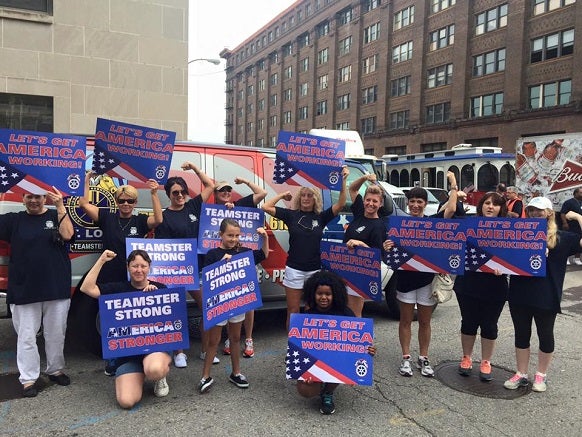Uncategorized
Some Bosses Try to Influence Workers’ Votes

Politically pressuring of workers on the job is real.
Employers are transmitting political messages to some one-quarter of all workers at their jobs, a new doctoral study says. And the author’s interviews with workers add that one-fifth of that group – five percent overall – report economic pressure to vote a particular way.
In his paper published by the American Political Science Association, Harvard University doctoral candidate Alexander Hertel-Fernandez reported the economic pressure includes threats of firing, discipline and wage cuts.
Political messaging from employers is important, since the boss has the power, in non-union workplaces, to fire workers at will and for any reason, including political beliefs, or none. Employer threats to worker livelihoods for political reasons have a long history. Hertel-Fernandez notes they’ve been around since at least the 1890s. Several by pro-Romney employers occurred in 2012.
Hertel-Fernandez said 24 percent of all workers got the boss’ political messages. And 11 percent of all workers reported the missives were about voter registration and turnout, with the rest evenly split between issues and legislation, and candidates and political parties.
Some 43 percent of employer messages were conservative and another 30 percent were moderate. “Well over half of contacted workers reported they received messages from their employers that ran contrary to their own political beliefs, for instance, liberal workers who were contacted by conservative employers,” Hertel-Fernandez discovered.
The proportion of workers receiving political messages from their employers, which sometimes includes information about which candidates and parties the bosses support or donate to, is double the share – 12 percent – who reported receiving messages from unions, he noted. Ironically, only four percent of the employers’ messages were about unions themselves, the study says, ahead of only messages about trade (three percent).
“If employers make a political request of their workers while also incorporating an explicit or implicit warning about job losses or wage cuts, workers might feel pressured to follow through on their employer’s request – even if workers might not agree with their employer’s position,” Hertel-Fernandez wrote.
“This economic pressure might well violate workers’ political liberty, as workers are forced to behave in ways that they would not otherwise in order to appease their employers,” he added.
- Press Associates, Inc., contributed to this report.